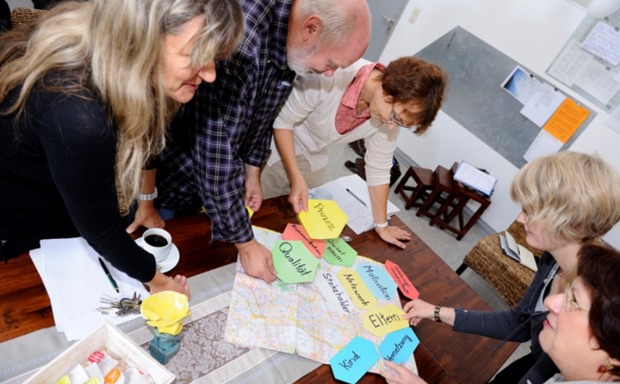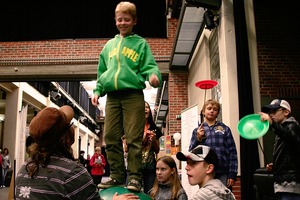Why this is important
Education is a key issue in local development. Frequently, however, there is no overall strategy. Whether it is language support, parent counselling, inclusion programmes or traditional tutoring: each of these educational opportunities usually stands alone. As a consequence, children in need of broad-based support often fall through the system.
Educational landscapes open up new learning experiences and better opportunities for participation to children, young people and adults. After all, providing the best possible support to each learner requires a strong network. Ideally, a local educational landscape involves all educational stakeholders in a given community: senior administrators, teachers and educators, education coordinators and neighbourhood managers, as well as representatives of associations, clubs and citizens’ foundations. Only if all parties pull together will it be possible to provide optimal support to all children from the start.
According to UNICEF, about one-third of all refugees coming to Germany are still children. Some of them arrive unaccompanied by their parents or another adult. They set out on their troublesome journey to escape from prosecution, war, terror and oppression. To make their journey easier from now on – both for themselves and for the communities welcoming them – the German Children and Youth Foundation, in cooperation with the Federal Ministry of Family Affairs, Senior Citizens, Women and Youth, has launched the ‘Welcome Among Friends’ programme. Six regional service offices are there to assist cities and counties with welcoming young refugees in day care centres and schools and facilitating their transition from school to work.
Education is the future: everyone agrees on that. But how can we design and manage local education offerings in a way that all children, young people and adults have access to a good education? Municipalities all over Germany are faced with the challenge of finding sustainable answers to this question. Based in Berlin, Hamburg and Bremen, the Transfer Agencies for Major Cities assist populous cities with establishing a local education monitoring and management system or with improving existing structures.
In the ‘Working Together to Help Pupils Succeed!’ programme in the state of Saxony-Anhalt, schools, youth welfare institutions, local administrators and partners from the region work together to provide all children and young people with access to a high-quality primary and secondary education. The goal is include all pupils and to provide professional support especially to those who are at risk of dropping out of school. To accomplish this goal, the German Children and Youth Foundation has sent school social workers, who are now active at more than 350 schools.



